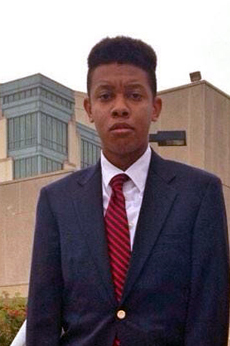American Studies and Political Science, minor in History

In this study, a cultural and linguistic approach was used to analyze the effect that speeches by members of the right-wing Tea Party Caucus have had on conservative political discourse. The rhetoric of these politicians after their ascendance in the 2010 congressional elections was compared to the rhetoric used by John McCain, the Republican nominee in 2008, and Donald Trump, the Republican nominee in 2016, to understand their effect on conservative discourse. This shift in discourse was studied using speech analysis to code for instances of negative discourse and establish a comparison between the election years while also noting rhetorical shifts among mainstream conservative politicians.
Note: This current research project was an expansion of the project I did last summer with McNair that better incorporated outlying statistical categories to shifts in discourse, such as trust in the media and fear of terrorism.
Who is your mentor for your research project? And how did you arrange to work with this person?
Over the summer, I worked with Dr. Simone Chambers, Dr. Michael Tesler, and Dr. Davin Phoenix of the University of California, Irvine Political Science Department. I worked with these professors through the Summer Undergraduate Research Fellowship (SURF) Program of the UCI Graduate Division.
How did you know this was the project you wanted to do?
I had worked on the origins of this project the previous summer, but I learned from these professors and incorporated new statistical insights.
Is this your first independent research?
It was not. You can read my abstract from my previous research project “It’s Just A Jump To The Right: How The Tea Party Has Affected Conservative Discourse” here.
Do you get course credit for this work?
I received practicum credits.
How much time do you put into it?
I worked on this project for at least 10 hours each week this past summer, but I also worked on it during last summer at UMBC and during the winter semester.
How did you hear about the Undergraduate Research Award (URA) program?
I have worked with Dr. Householder in the past.
What academic background did you have before you applied for the URA?
I am a McNair scholar.
Was the application difficult to do?
No.
How much did your mentor help you with the application?
My mentors assisted me greatly in developing a strong application.
What has been the hardest part about your research?
The hardest thing was finding speech transcripts for some of the Tea Party congressmen and women.
What was the most unexpected thing?
I didn’t think the increase in harmful discourse usage by Republicans would be that stark, but I found a fivefold increase from 2008 to 2016.
How does your research relate to your work in other classes?
I have done rhetorical analyses in multiple American Studies and Political Science classes.
What else are you involved in on campus?
I am currently the President of UMBC Progressives and I assist the College Dems as well.
What is your advice to other students about getting involved in research?
Don’t be afraid to follow up. Don’t be afraid to email professors twice. Use all your leads to try and get the best opportunities you can.
What are your career goals?
I would like to be an academic and an issue advocate in the Baltimore area.
Op-eds by Richard
- The Democratic Party: How Progressive? Sincerely, a Sanders Supporter
- A critique of Neoliberalism Sincerely, a Sanders Supporter
- The Downfall of Establishment Politics
The Baltimore Zeitgeist
- The Trump Effect
- ‘Twas Bigotry Killed The Beast
- Authoritarians Abroad: The Republican Party’s Ties to Autocrats and Dictators
- Some Ideas About How The GOP Can Save Itself
- Top 10 Things That Helped The Meanest Oompa Loompa In The Bunch Rise To The Top
- Now Is Not The Time To Take A Political Stand
The Odyssey Online
10/17/18